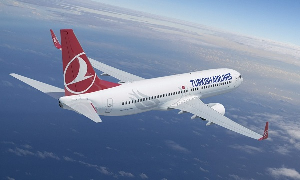Kumasi, Jan 29, GNA - The Directorate of Anaesthesiology and Intensive Care of the Komfo Anokye Teaching Hospital (KATH) in Kumasi in collaboration with the University of Utah Medical School is developing an anaesthesia registry in the country.
The registry will help document the number and types of surgeries performed, the anaesthesia technique used, type of monitoring patients outcome and anaesthesia related adverse events.
It will also allow targeted educational activities and exchange of programmes to improve service delivery in the country. Dr Gabriel Boakye, head of the Anaesthesia and Intensive Care Unit of KATH, who made this known, said the directorate together with its partners had requested the Anaesthesia Patient Safety Foundation of the USA to evaluate anaesthesia practice and safety issues in the country annually.
He was speaking in an interview with the Ghana News Agency in Kumasi on Friday, ahead of a two day workshop on anaesthesia management of adult and paediatric trauma, scheduled for Kumasi on first and second February, this year.
The workshop, which is an annual event of the directorate and the University of Utah Medical School, is to update the knowledge, skills and practices of anaesthetic doctors and nurses from regional and district hospitals in the country.
A two week seminar will also be held after the workshop to build the capacities of both nurse and doctor anaesthetists in modern anaesthesia techniques, basic and advanced life support training in order to enable them play a frontline role in the training of staff to handle accident victims including children.
Dr Boakye said as part of the University of Utah Medical School International Programme, a grant of 2,573,000 dollars was being requested from certain Foundations and organizations in the USA to fund the project.
He said Ghana currently had only 15 qualified anaesthetic doctors, most of whom are based in Accra, and as such the nation relied heavily on the anaesthetic nurses to manage trauma in the district and regional hospitals.
Dr Boakye said the workshop and the training seminar were therefore an effort by KATH to equip the knowledge of the participants on the modern and practical skills in basic and advanced life supporting systems to enable them cope with emergency situations in their hospitals.
He said Utah Medical School had assisted the training programme with materials and equipment worth over two million dollars, since it began about three years ago, adding that, more than 60 large bins of materials had already arrived in the country for the current programme.
General News of Sunday, 29 January 2006
Source: GNA
















